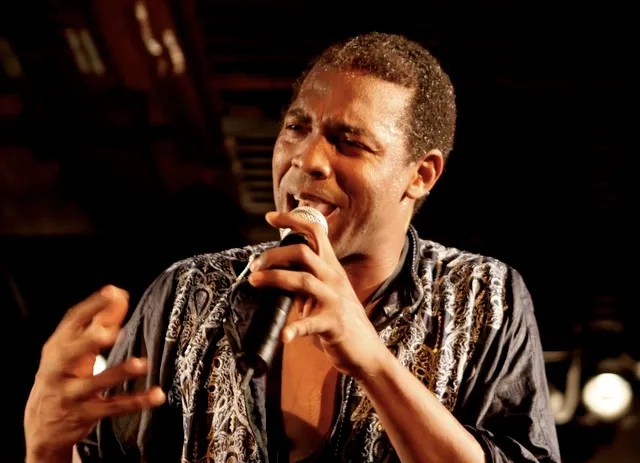Femi Kuti denies claims that late drummer Tony Allen co-created Afrobeat with his father, Fela Kuti, calling the widely held belief false.
For years, both local and international media have described Allen as a co-founder of Afrobeat. As Fela’s long-time drummer and musical director, Allen is often praised for helping shape the sound that became a global cultural force. But Femi Kuti says that story is false.
Femi Kuti speaks out
In a video message posted recently on his social media page, Femi firmly rejected the co-founder narrative. He stated that while Tony Allen was a talented drummer, he did not contribute creatively to Afrobeat’s structure or identity. Instead, Femi credited his father with single-handedly developing the genre.
“My father was a multi-instrumentalist. He studied music seriously. He understood every part of every instrument he played,” Femi said. “You’ve probably read somewhere that Fela once said, ‘Without Tony Allen, there is no Afrobeat.’ That’s the biggest lie ever told about my father. It’s absolute nonsense.”
Fela created the patterns
The afrobeat icon’s son explained that Fela developed all the rhythms and arrangements used in Afrobeat. He claimed that Allen simply played what Fela taught him, just like the other instrumentalists in the band.
“They tried to make Tony Allen into something bigger than he was by spreading lies,” Femi said. “He was good at what he did. But Fela taught him. Fela created all the drum patterns. We saw it happen with our own eyes.”
Femi said he witnessed this process from childhood through adulthood. As someone who grew up around his father’s music, he said he was present during writing sessions and rehearsals.
The creative process was solo
He described Fela’s creative method as deeply personal and intense. When composing music, Fela often entered a trance-like state and demanded silence from everyone around him.
“Fela would go into a trance when writing music. Nobody was allowed to interrupt him,” he said. “During those moments, everyone had to be quiet and wait for his instructions. Nobody, not even Tony Allen, could suggest changes.”
Challenging the narrative
Femi challenged those who repeat the story of Tony Allen as a co-creator to provide evidence. “I keep asking, where did Fela say Tony Allen created Afrobeat with him? Show me the interview. Show me the article. Show me the video. There’s nothing. Because it never happened,” he said.
According to Femi, if Allen had played a role in creating the music, he would have been able to name specific songs or drum patterns. But Femi claims that no such information exists.
“Tony Allen never said which songs he created or what patterns were his. Because there were none,” he said. “Fela never asked anyone to create drum patterns for him. It just didn’t happen.”

Respecting the legacy
Femi also stressed that his father had a clear vision for Afrobeat and never accepted input during the composition process. “Fela was a perfectionist,” he said. “He knew exactly what he wanted from each instrument, each note, each rhythm. Every band member followed his direction, not the other way around.”
A global genre, a clear origin
Femi’s remarks come at a time when Afrobeat is gaining renewed global attention. The genre has influenced artists across Africa, Europe, and the Americas. With its rising popularity, discussions about who deserves credit for its creation have resurfaced.
Tony Allen, who passed away in 2020, was widely respected in the global music community. His work beyond Fela’s band earned him praise for innovation and skill. Despite their eventual split in the late 1970s, Allen often referred to Fela as a genius and visionary.
Setting the record straight
Still, Femi insists the story of joint creation does not match the facts. “Afrobeat was Fela’s vision, Fela’s work, and Fela’s creation,” he said. “That should be respected.”
For Femi, protecting his father’s legacy is not about taking away from Tony Allen’s talent. It’s about being truthful. “We must get the history right,” he said. “My father gave everything to this music. He deserves full credit.”
Read Also: Femi Kuti urges Nigerians to stay and fight for the country



